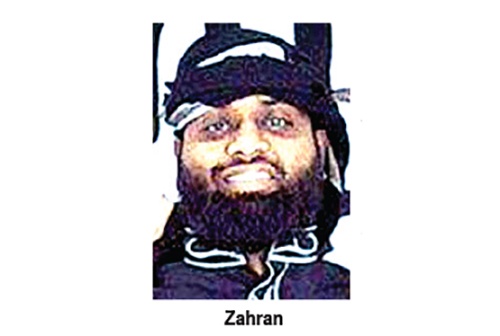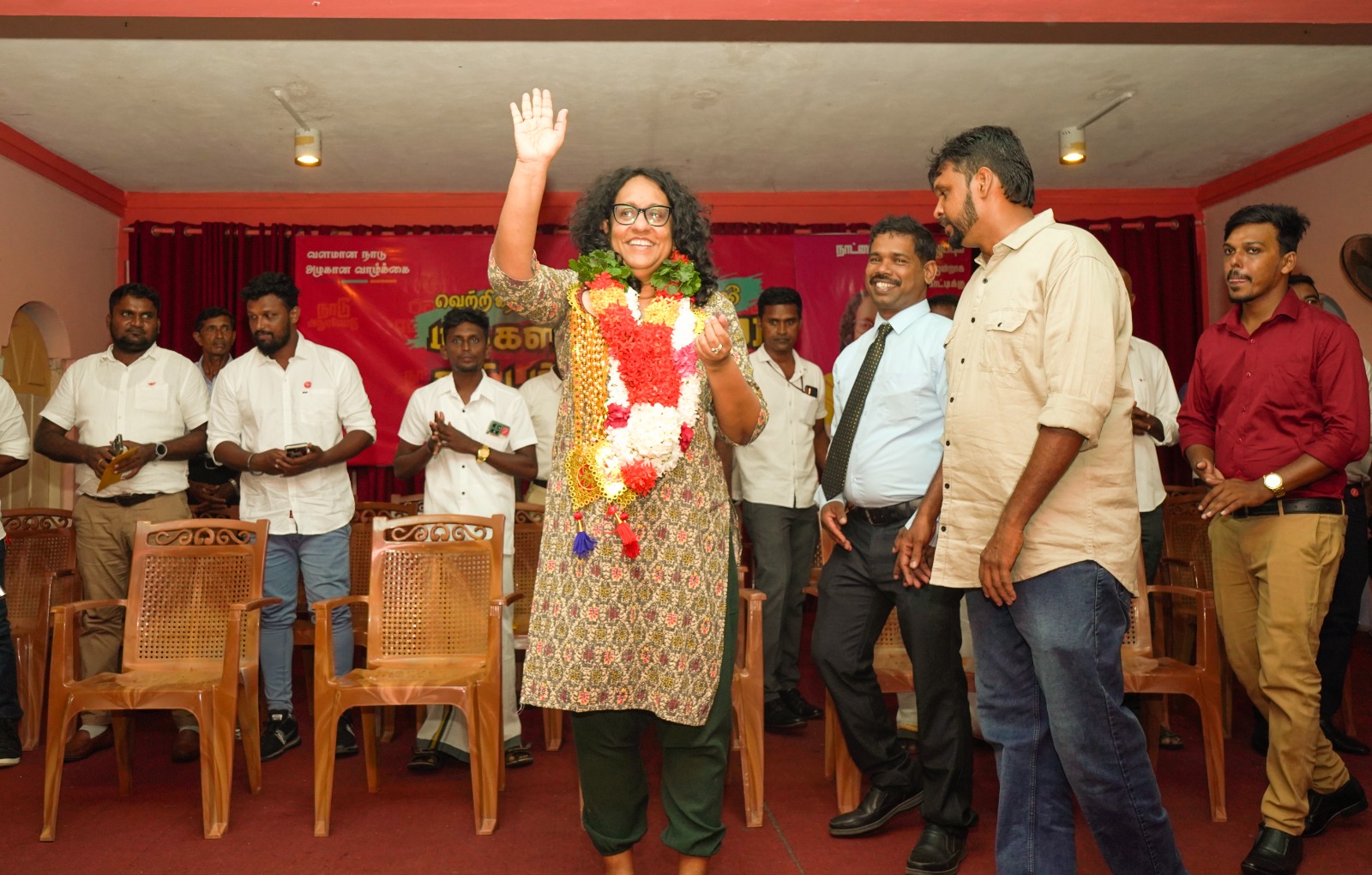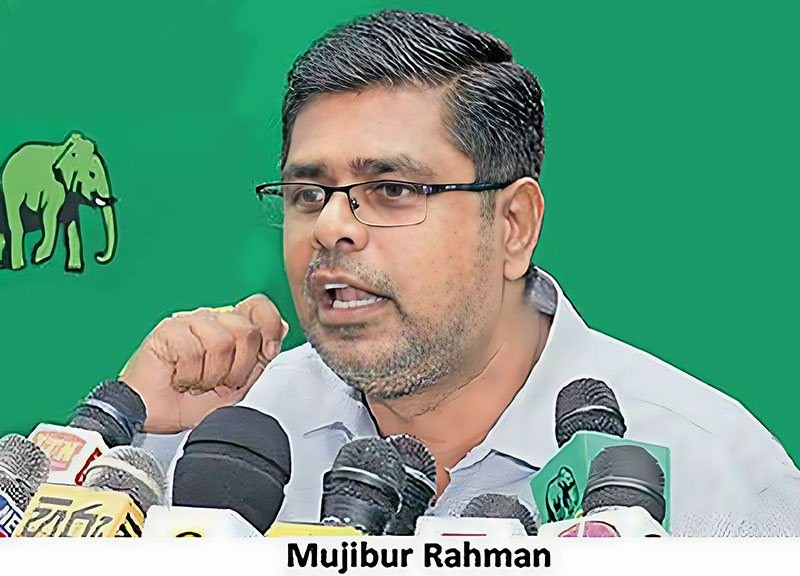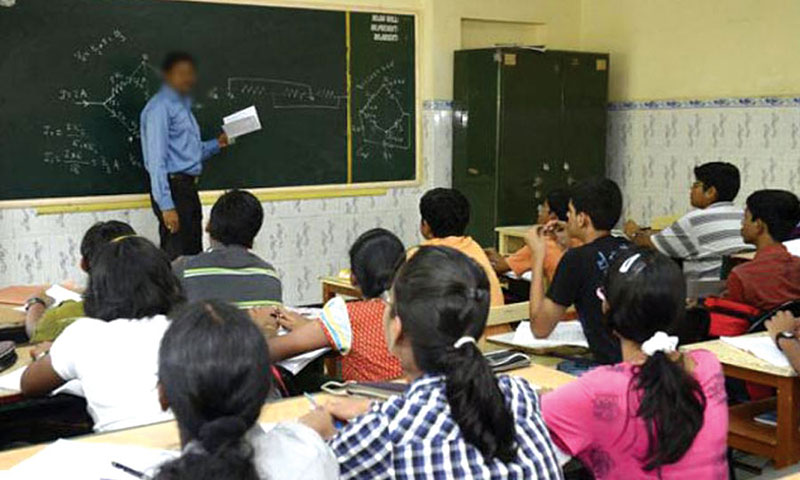News
PSC finally responds to AG’s recommendation to take action

The Public Service Commission (PSC) has responded to the Attorney General’s recommendation that disciplinary action be taken against Deputy Solicitor General Azard Navavi and State Counsel Malik Azeez, who were entrusted with the file on National Thowheed Jamaat (NTJ) and its leader Zahran Hashim, for lapses in handling the case, the Presidential Commission of Inquiry (PCoI) investigating Easter Sunday attacks was informed yesterday.
This was revealed when Attorney General (AG) Dappula de Livera’s Coordinating Officer, State Counsel, Nishara Jayaratne appeared before the PCoI.
The commission prevented the counsel disclosing the PSC decision.
A request by Shavindra Fernando, PC, who appeared for Navavi, to declare Jayaratne guilty of contempt of PCoI was rejected by a majority of the Commissioners.
AG Dappula de Livera’s Coordinating Officer, State Counsel, Nishara Jayaratne was ordered to appear before the PCoI considering a request made by Shavindra Fernando, PC, on 15 December 2020.
On that day, it was revealed that the Attorney General had recommended disciplinary action against Deputy Solicitor General Azard Navavi and State Counsel Malik Azeez, who were given the file on National Thowheed Jamaat (NTJ) and its leader Zahran Hashim as far back as 2017. A preliminary inquiry on the duo by a three member committee had also been concluded and the investigators recommendations together with charge sheets had been sent to the Public Service Commission (PSC), Additional Solicitor General, Sumathi Dharmawardena told the PCoI, yesterday.
On 05 December Deputy Solicitor General Navavi said that the Attorney General’s Department had paid attention to the file on NTJ leader Zahran Hashim, sent by Terrorism Investigation Division (TID) seeking their advice, only three weeks after the Easter Sunday attacks. Chairman of the PCoI asked Navavi what the AG’s Department did about the file on Zahran, sent by the TID for legal advice. Navavi said that he received the file on 07 June 2017 and that he designated State Counsel Malik Azeez, who was under him, to handle the file. Both men insisted that the TID had not furnished the information it had in its possession about NTJ and Zahran until 2019.
Additional Solicitor General, Sumathi Dharmawardena was called before the PCoI to shed more light on the matter. Dharmawardena is also in charge of administration at the AG’s Department. Dharmawardena said that in 2019, he testified before the Parliamentary Select Committee (PSC) on the Easter Sunday attacks on the file TID had sent.
Dharmawardena added that he had drawn Attorney General Dappula de Livera’s attention to the final report of the PSC on or around 24 February 2020. The following day, Livera had recommended that an inquiry be conducted on Navavi and Azeez. Initially, the investigation was to be conducted by Deputy Solicitor General, Susantha Balapatabendi.
However on 13 March 2020, a three-member committee consisting of Senior Additional Solicitor General, Sarath Jayamanne, Balapatabendi and Senior Deputy Solicitor General, Mayadunne Corea was appointed. Jayamanne resigned from the committee on 29 May 2020 and on 01 June 2020, Additional Solicitor General, Priyantha Nawana was made the head of the Committee, Dharmawardena said.
The committee completed the investigation in July 2020 and the report had been sent to him, Dharmawardena said. The document contained draft charge sheets. It was given to Acting Solicitor General Sanjay Rajaratnam for further recommendations. On 27 July 2020, Rajaratnam had recommended disciplinary action, Dharmawardena said.
Shavindra Fernando, PC, who appeared for Navavi then brought Dharmawardena’s attention to a letter the AG sent to acting IGP on 18 June 2020. In the letter Livera has said law officers of the AG’s Department had done nothing wrong.
Fernando: “On 10 June 2019, the coordinating officer to the AG repeated the claim in a press release. It is obvious that AG didn’t think Navavi and Azeez had done anything wrong.” Fernando then asked the PCoI to summon State Counsel, Nishara Jayaratne as she was responsible for issuing press releases.
Jayaratne arrived at PCoI last Friday and soon got into a heated argument with Fernando, who accused her of contempt of PCoI. Jayaratne, who had appeared without a lawyer, sought legal advice and PCoI granted her time till yesterday.
Jayaratne yesterday appeared with another counsel from the AG’s Department and Fernando objected to it. However, Senior Deputy Solicitor General Vikum de Abrew said the counsel could appear on behalf of Jayaratne.
De Abrew also said that PSC had responded, on 15 December 2020, to the report the AG’s Department sent on Navavi and Azeez.
Chairman of the PCoI: “If you want to say something about what the PSC said about your recommendation, please let us know through the Department.”
Then the cross examination of Jayaratne began.
Shavindra Fernando PC: “The letter the AG sent to the acting IGP on 18 June 2020 states that the law officers of the AG’s Department had done nothing wrong. Isn’t this his opinion on the matter?”
Senior Deputy Solicitor General Vikum de Abrew said: “My learned friend has asked this question 18 times before. The witness has already responded.”
Fernando: “I am repeating myself because I didn’t get a straight answer. The letter to the acting IGP reflected the AG’s opinion. Isn’t that so?”
Jayaratne: “This letter doesn’t contain the AG’s opinion. It contains instructions to the then acting IGP. Twice the AG said, “I advise.” There are two sides to a coin. The AG advises the acting IGP to conduct further investigations because the file is incomplete. On the other hand, we don’t need to inform the acting IGP if our law officers have made lapses.”
Fernando then told PCoI that Jayaratne was not giving straight forward answers just like she had done the previous day. He again urged the PCoI to consider Jayaratne guilty of contempt of PCoI.
Jayaratne said that it was unfair to make the allegation and that it was an attempt to tarnish her image. She said: “I never insulted the commission. I answered all the questions. They are trying to tarnish my reputation and the post I hold.”
The Chairman of the PCoI said that she was guilty of contempt, but the other commissioners were of the view that she was not.
News
Government to initiate new projects to help rural communities to strengthen the national economy – Prime Minister

Prime Minister Dr. Harini Amarasuriya stated that the government is currently working to initiate new projects across every area of Sri Lanka and to bring the necessary investments to rural areas in order to improve the participation of the communities in strengthening the national economy.
The Prime Minister made these remarks while addressing a public gathering held on Saturday (12th) in Nanattan, Mannar.
Prime Minister further stated:
“Our country has reached a decisive point. The government of the National People’s Power (NPP) understands the expectations of the people. The general public came together despite the ethnic and religious barriers to exercise their voting right against corruption in politics that existed in this country. Consequently, Anura Kumara Dissanayake was able to become the President in 2024. A month later, we formed a Parliament that will initiate in changing the history. Today, we have a government made up of 159 members. There is now a strong group in Parliament standing against corruption and a government that represents all ethnicities, religions, and regions. For the first time in history, we have formed a government made by a single party that represents everyone. The people are the ones who made this victory possible and they are the true victors in this cause.
We are committed to protecting the trust the people have placed in us and to fulfill their expectations.
You are well aware of how weak the economy was when we came to power. Officially, we had been declared a bankrupt nation before the world. For many years, Sri Lanka had no economic growth and was in a debt-ridden economy. The tourism sector had collapsed. Due to the corruption in political authority, investors were unwilling to invest the country. Today, we have changed all that. We have managed to steer the economy towards growth leading to investments being restored while the confidence in Sri Lanka is increasing internationally.
We are working to start new projects in every area of Sri Lanka to bring the necessary investments to the rural sector, with the aim of improving the participation of rural communities in the national economy.
The first budget of the NPP government has passed. Even though the economy is not yet strong, we focused on two main priorities in the budget: one was to develop infrastructure necessary for economic growth, and the other was to provide relief to people burdened by economic hardships. That’s why we have increased and extended the period of Aswesuma benefits. Further, vouchers to buy schoolbooks was distributed at schools with less than 300 students.
Previous governments were a burden to the people. But today, we have a very small Cabinet of Ministers. The government is no longer a burden to the people. We have reduced expenses, minimized losses, and eliminated corruption.
Because the government is not a burden to the people, it was able to provide relief to the people. Through this budget, the basic salaries of the public service has been increased. They have been given the opportunity to work freely. Decisions are now made on statistical data and not based on political preferences. What we expect is an independent public service. We are in need of a people-centered government as well as a public service which should be an efficient, corruption-free and people-sensitive. We have already created the necessary environment for that.
In order to develop the rural economy, the government has allocated a large amount of funding through this year’s budget. But, to ensure that these allocations are used properly to serve the people, the local government institutions need to be cleaned up. If the leaders who represents the villages are corrupt, the funds allocated will become worthless. That is why the upcoming local government elections has become extremely significant and decisive.”
The event was attended by the Members of Parliament Jegadeeswaran and S .Thilakanadan, public representatives, and candidates of local government election representing the NPP.
[Prime Minister’s Media Division]
News
Batalanda: Why only now and what about the others, asks Mujibur

SJB Colombo District MP Mujibur Rahuman launched a fierce critique of the political hypocrisy surrounding the Batalanda Commission report during Thursday’s (10) parliamentary session.
Rahuman pointed to the violent actions of the JVP, which had devastating effects on politicians, police officers, and civilians, as detailed in the Commission’s final report.
He said that the violence had disrupted vital services and created a state of lawlessness, severely affecting the public.
The MP accused political opponents of exploiting the Batalanda issue for electoral advantage, noting that for 36 years, no proposals were made to investigate the assassination of JVP leader Rohana Wijeweera.
He criticized the JVP for forming “probationary” governments with Chandrika Kumaratunga and backing Ranil Wickremesinghe in the yahapalana effort, yet failing to address the Batalanda issue during their tenures.
Rahuman also questioned the current attacks on Wickremesinghe, highlighting that many of his critics had previously collaborated with him. He called attention to the JVP’s statements regarding Gotabaya Rajapaksa’s alleged involvement in a Matale mass grave and the distribution of pamphlets on the subject during the 2022 Galle Face protests.
The MP called for accountability, questioning why no proposals were put forward on these issues when the current government came into power. He also criticized the NPP for its leaders, who, despite being involved in suppressions during the 80s and 90s, now sought positions within the government. Rahuman accused them of hypocrisy, warning against dragging the Batalanda issue into the ongoing election.Rahuman said that the historical wrongs committed by JVP political leaders cannot be erased, regardless of attempts to downplay them.
News
Rs. 200 Bn tutoring industry contributing to teacher shortage crisis

The country’s education system is facing a severe crisis, marked by a growing shortage of teachers for the G.C.E. Advanced Level (A/L) classes, particularly in urban national schools, says the Ceylon Teachers’ Union (CTU), which highlights the government’s failure to take meaningful action despite acknowledging a deficit of approximately 30,000 teachers.
CTU Secretary Joseph Stalin told the media on Thursday that national schools, particularly in urban areas such as Colombo, are severely affected. “Existing teachers are overwhelmed with excessive workloads, and there is a critical need for qualified educators, especially English-medium graduates in subjects like science, mathematics, and IT,” Stalin said, describing the situation as a “serious crisis.” He warned that the teacher shortage is undermining the quality of education for thousands of students preparing for university entrance.
Prime Minister Harini Amarasuriya, in a speech to Parliament earlier this year, confirmed that over 40,000 teaching vacancies exist across the country, with 2,652 of these in national schools. Despite efforts to fill these vacancies, bureaucratic hurdles and legal challenges have delayed progress, leaving both students and educators in a precarious position. Former Education Minister Susil Premajayantha’s attempts to resolve the crisis last year were unsuccessful, according to industry sources.
As the teacher shortage deepens, many students and parents have turned to the private tuition sector to compensate for the gaps in the formal education system. Professor Wasantha Athukorala, Director of the Postgraduate Institute of Humanities and Social Sciences at the University of Peradeniya, revealed that the tutoring industry has ballooned into a Rs. 210 billion sector. “Over Rs. 200 billion is circulating in the tutoring sector, with an increasing reliance on private tuition to fill the void left by the shortage of teachers in schools,” Prof. Athukorala said.
Industry sources report that private tutoring has become a lucrative business, particularly for A/L students, with estimates indicating that tutors collectively earn Rs. 210 billion annually. This figure excludes income from smaller private classes, which are increasingly held in urban areas. The booming tutoring industry is a stark reflection of the failure of the formal education system to meet students’ needs. Of the total revenue, Rs. 80 billion is generated from A/L students, underscoring the growing dependence on private tuition rather than state-run education.
Prof. Athukorala also raised concerns about the detrimental effects of late-night tuition sessions, which have become increasingly common. Classes that run well into the night, sometimes until midnight, place additional stress on students who are already burdened by their academic workloads. Moreover, the informal tutoring sector remains largely unregulated, with minimal oversight and no taxation framework in place.
The Ministry of Education has reported a significant shortage of teachers in key subjects, including English, Science, and Mathematics, with nearly 30,000 vacancies nationwide. However, efforts to fill these gaps have been largely ineffective, leaving schools struggling to cope. Teacher unions have raised alarms over the declining attendance rates in schools, particularly in A/L and O/L classes, as more families opt for private tuition to ensure their children’s academic success.
-

 Business6 days ago
Business6 days agoColombo Coffee wins coveted management awards
-

 Features2 days ago
Features2 days agoRobbers and Wreckers
-

 News1 day ago
News1 day agoSuspect injured in police shooting hospitalised
-

 Features4 days ago
Features4 days agoSri Lanka’s Foreign Policy amid Geopolitical Transformations: 1990-2024 – Part III
-

 Midweek Review4 days ago
Midweek Review4 days agoInequality is killing the Middle Class
-

 Features6 days ago
Features6 days agoSri Lanka’s Foreign Policy amid Geopolitical Transformations: 1990-2024 – Part I
-

 Features5 days ago
Features5 days agoA brighter future …
-

 Business3 days ago
Business3 days agoNational Anti-Corruption Action Plan launched with focus on economic recovery











